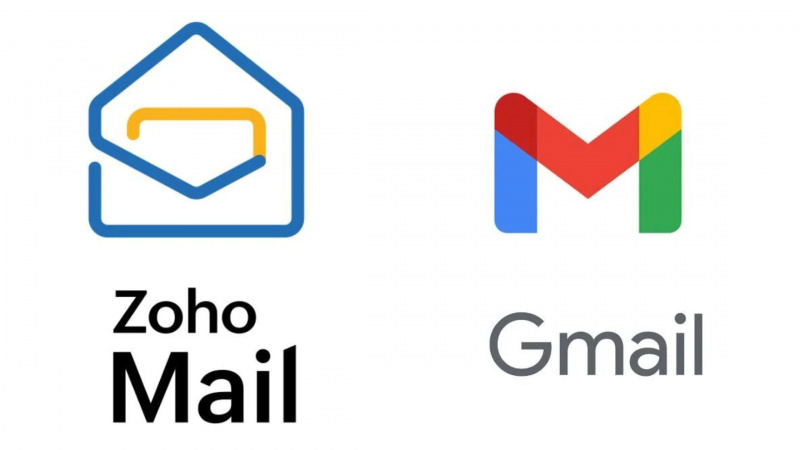Meta PlayAI Acquisition Signals Big Push into Voice-First AI Experiences
What Is PlayAI and Why Does It Matter?PlayAI is a voice-oriented AI startup focused on natural sounding voice generation tools
- by Shan 2025-07-14 12:05:17
Meta’s New Voice in AI
Meta has acquired PlayAI, a rising startup in the voice technology space, marking another significant step in its aggressive push toward building a world-class AI ecosystem. Following its $14.3 billion buyout of Scale AI, this deal further shows Meta’s intent to dominate the audio and voice-first segment of artificial intelligence.
While the terms of the PlayAI acquisition remain undisclosed, the entire team is set to join Meta under Johan Schalkwyk—ex-Sesame AI and a known figure in voice-based AI.
But what exactly does PlayAI bring to Meta? And how does this tie into the company’s bigger AI playbook? Let’s break it down
What Is PlayAI and Why Does It Matter?
PlayAI is a voice-oriented AI startup focused on natural sounding voice generation tools and a simple audio creation platform. An internal memo from Meta shared with Bloomberg, PlayAI's work is very much in agreement with work that is being done across:
AI Characters
Meta AI assistants
Wearables like Ray-Ban smart glasses
Audio content creation for platforms like Instagram and Threads
Their expertise lies not just in voice synthesis, but in simplifying how voices are created—something that could drastically reduce the technical barrier for developers and creators.
Key Value of PlayAI:
High-quality, human-like voice generation
Easy-to-use voice creation platform
Strong synergy with AR/VR, AI characters, and smart assistants
This acquisition is more than just a talent grab; it’s indicative of Meta’s wider mission to regroup and reform after the lackluster reception of its LLaMA 4 models earlier this year. Although Meta invested a lot of R&D in those models, they did not have the same explosive reception or impact as OpenAI’s GPT-4o or Google’s Gemini. In response, Meta: Establish the Meta Superintelligence Lab, directed by Alexandr Wang (formerly of Scale AI) Started to build aggressively a cadre of amazing AI talent, including engineers from Apple, OpenAI, and Google Focused on developing foundational AI tools to increase user engagement across its suite of apps and hardware From Alexa to Siri to ChatGPT voice mode, we've already witnessed how natural interfaces are altering the way humans interact with machines. With PlayAI, Meta is going all in on making these experiences more human, more personal, and more accessible." Here’s how Meta might integrate PlayAI’s tech: AI Characters in Messenger/Instagram DMs: Chat with a virtual creator who sounds real Voice narration for Reels and Stories: Auto-generated voiceovers in different accents and tones AI avatars in AR/VR: Personalized, voiced assistants in the metaverse Accessibility features: Natural-sounding text-to-speech for visually impaired users "Voice is not just an interface; it’s an identity. PlayAI helps bring that identity to life." Meta’s challenge is clear. OpenAI has ChatGPT and Whisper, Google has Gemini and Voice AI labs, and Apple has quietly led on-device AI innovations. Meta, despite owning platforms used by billions, has lacked standout voice-based tools—until now. Where Meta Stands: Strengths: Platforms (WhatsApp, Instagram), hardware (Ray-Ban smart glasses), and distribution Weaknesses: Model quality (compared to GPT-4o, Gemini), lack of standout AI voice tool until PlayAI If Meta succeeds in integrating PlayAI smoothly, we could see a rise in voice-first content creation tools for developers, influencers, and even small businesses. Generate voices for characters, narration, or branding Customize tone, emotion, language without needing a recording studio Embed natural-sounding AI voices into apps, games, or AR tools Tap into Meta’s infrastructure and user base for faster deployment Despite the hype, a few key questions remain: Can Meta integrate PlayAI’s tech seamlessly? Will creators trust AI-generated voices on Meta’s platforms? Is the race to voice AI turning into a talent war more than a tech one? Meta’s strategy so far looks aggressive but not reckless. However, much depends on execution, especially given the scale of platforms like WhatsApp and Instagram. Read also: Google Rolls Out ‘AI Mode’ in Search for Indian Users: What It Is, How It Works Meta's acquisition of PlayAI represents more than additional company purchase of AI technology. It is an explicit and intentional effort to change its platforms into voice-first platforms - AI does not simply think, AI converses. Whether you’re a developer, creator, or just curious about where tech is heading, one thing’s clear: Voice is the new interface. And Meta wants to own that conversation.Strategic Context: Meta’s AI Overhaul
Recent AI Moves by Meta:
Why Voice-First AI Is the Next Big Thing
Voice AI: More Than Just Talking
Competitive Landscape: Meta vs OpenAI, Google, Apple
Comparison Table: Voice AI Capabilities
Expert Insights: What This Means for Creators and Developers
For Creators:
For Developers:
Risks and Questions Ahead
Final Takeaway
POPULAR POSTS
The Agentic Revolution: Why Salesforce Is Betting Its Future on AI Agents
by Shan, 2025-11-05 10:29:23
OpenAI Offers ChatGPT Go Free in India: What’s Behind This Big AI Giveaway?
by Shan, 2025-10-28 12:19:11
Zoho Products: Complete List, Launch Years, and What Each One Does
by Shan, 2025-10-13 12:11:43
Arattai vs WhatsApp: Which Messaging App Should You Choose in 2025?
by Shan, 2025-10-10 11:55:06
Top Buy Now Pay Later (BNPL) Apps for Easy Shopping in 2025
by Shan, 2025-09-22 10:56:23
iPhone 17 Sale in India Begins: Full Price List, Launch Offers and Store Availability
by Shan, 2025-09-19 12:00:45
Apple September 2025 Event Recap: iPhone 17, iPhone Air, Apple Watch Series 11, and India Pricing Revealed
by Shan, 2025-09-10 09:55:45
RECENTLY PUBLISHED

Loan EMIs to Drop as RBI Slashes Repo Rate - Full MPC December 2025 Highlights
- by Shan, 2025-12-05 11:49:44

Pine Labs IPO 2025: Listing Date, Grey Market Premium, and Expert Outlook
- by Shan, 2025-11-05 09:57:07

Top 10 Insurance Companies in India 2026: Life, Health, and General Insurance Leaders Explained
- by Shan, 2025-10-30 10:06:42

Best Silver Investment Platforms for 2025: From CFDs to Digital Vaults Explained
- by Shan, 2025-10-23 12:22:46

Zoho Mail vs Gmail (2025): Which Email Platform Is Best for Businesses, Startups, and Students?
- by Shan, 2025-10-09 12:17:26

PM Modi Launches GST Bachat Utsav: Lower Taxes, More Savings for Every Indian Household
- by Shan, 2025-09-24 12:20:59




 Subscribe now
Subscribe now 